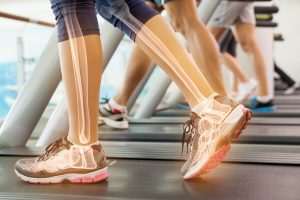 It’s easy for your bones to get buried when you’re prioritizing overall health. After all, weak bones might not necessarily have the same implications as hypertension, high blood sugar, or dementia.
It’s easy for your bones to get buried when you’re prioritizing overall health. After all, weak bones might not necessarily have the same implications as hypertension, high blood sugar, or dementia.
But weak bones can pose a serious health risk. Weak, brittle bones are more likely to fracture under simple duress or low impact, which can increase the risk of mobility troubles, severe injury, and even death.
Advertisement
Your bones play several roles in your body. They provide structure, protect your organs, anchor muscles, and store calcium. To maximize their effectiveness in all these areas, they need to be strong and dense, ready to withstand stress.
Bones are not static; they are constantly in flux. Bone is always breaking down and being remade. However, as you’ve gotten older, it’s not happening at the same pace as it did in your younger years.
These days, you may be losing slightly more bone than you’re making, putting you at risk for weak bones and conditions like osteopenia and osteoporosis.
Today, your bone mass ultimately depends on two things: your past and how you’re living right now. Most people reached peak bone mass around 30, and those that lived active lifestyles, ate a healthy diet, or had good genetics have more “in the bank” that they can afford to lose.
But that’s not the whole story. Bone strength also depends on how you’re living now. Several factors contribute to bone health, and manipulating them can help reduce your risk for osteoporosis and help you retain decent levels of bone density.
What are the most important factors in bone health?
The two most important and modifiable factors are diet and exercise. Getting enough calcium every day, based on your age and gender, is essential for rebuilding lost bone. Enough vitamin D is important, too, because it is required for calcium absorption.
Advertisement
Exercise puts stress on the bone to help it build density. When bones are under pressure from walking or weight training, they respond by getting stronger and denser.
Other factors that play a role in bone health include:
- Whether or not you smoke and how much you drink
- Gender (women are more likely to suffer from osteoporosis than men)
- Size (skinny individuals tend to have less bone mass)
- Hormones (too much thyroid hormone can contribute to bone loss. Dropping estrogen levels can dramatically
- increase bone loss during menopause for women. Low testosterone may affect bone density in men).
Do your best for your bones: you need to keep yourself up and connected. Pay attention to the factors you can control to maximize bone strength and health to limit the risk of fractures and osteoporosis.
